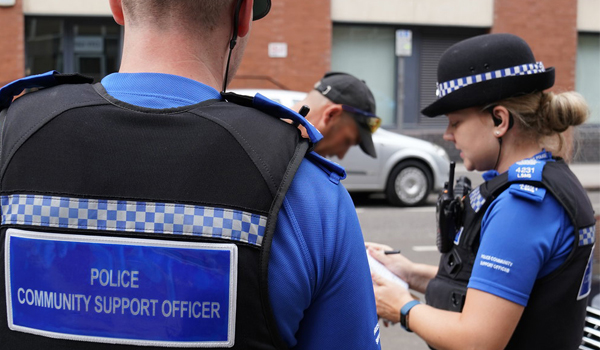PCSO handbook update reflects importance of role
Police community support officers (PCSO) now have access to an updated handbook to help them better understand their deployment, legislation, and powers.
Published by the College of Policing, the new version will also “make sure the role is more widely understood” by supervisors, those who deploy PCSOs, chief officers, police and crime commissioners, and individuals who are interested in becoming PCSOs.
It was drawn up following consultation with PCSOs and staff associations, and replaces the previous operational handbook, published in 2019.
The 32-page handbook standardises entry route methods (including the policing education qualifications framework (PEQF) and aligns training and development with the police constable degree apprenticeship (PCDA) developed by the college.
The College of Policing said since their introduction in 2002, PCSOs have become “an integral part of the neighbourhood policing portfolio and provide a link between the police and communities”, adding: “Publicly facing, they are a trusted visible, accessible, and approachable uniformed presence in communities.”
Inspector Tonya Cook, frontline policing adviser at the College of Policing, said: “PCSOs are incredible people who bring unique skills to policing and selflessly serve communities. They provide an important presence to help policing effectively respond to the needs and concerns of communities and keep people safe.
“The updated handbook was designed by the college to make sure their role is more widely understood across policing and within communities. It also allows potential applicants to appreciate the nature of being a PCSO.”
The new handbook is available at PCSO handbook | College of Policing. It was reviewed by the National Police Chiefs’ Council lead, the union Unison and PCSOs prior to publication.


